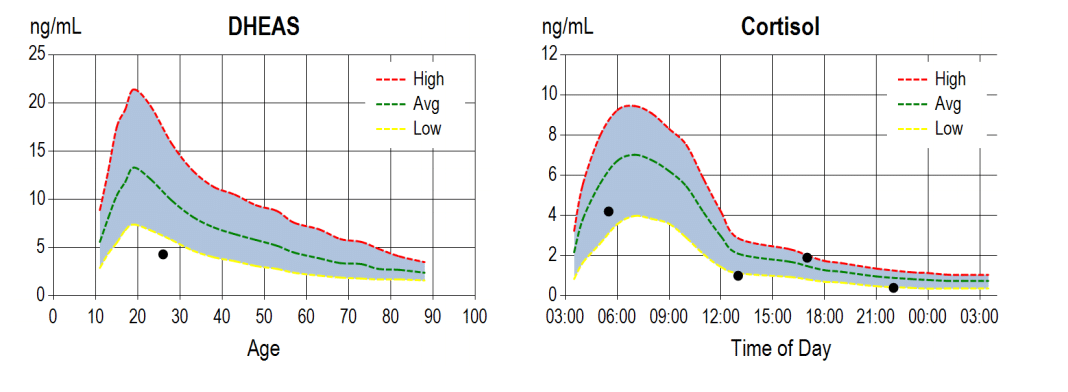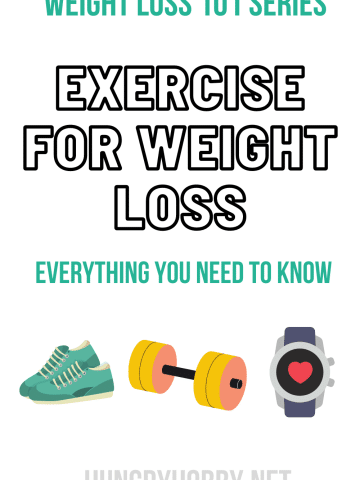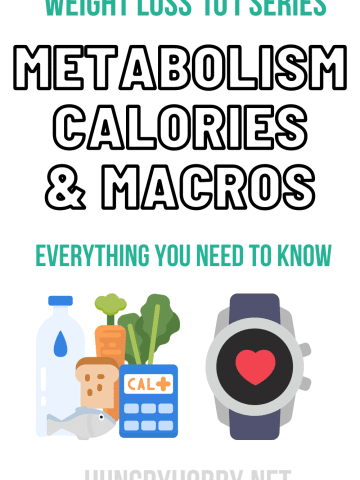Buckle up friends, this is a long one! For the next few weeks, I'm going to be talking weight loss on Mondays! DM me on Instagram if you have specific questions I can answer in this series! Or email me at kelli@hungryhobby.net.
On this year's HH survey, 90% of those of you who responded mentioned weight loss as a goal. I have to admit, that's the highest number of responses to weight loss I've ever seen. That's aligned with a statistic I read (I can't remember where) that said over 50% of millennials said they gained 40lbs or more during the COVID lockdowns. It's been a year and a half, and while things have returned to some sense of normalcy for some people, others are still working full-time remote or on a hybrid schedule.
It makes total sense that despite more people being at home, most people would experience weight gain during the last year and a half. While initially, we may have thought that we would have more time to cook and exercise, in reality, many millennials found themselves being a work from home parent(s) with little to no help. That meant they were now responsible for their children's online learning AND completing their job tasks. As a result, their busier and more stressed than ever before, so that isn't exactly a recipe for successful weight reduction or even weight maintenance. Not to mention all the unknowns surrounding COVID, stressors around high-risk family members (or themselves), etc.
Let me give you some food for thought for a second.
I've never sat with a client who just started gaining weight without a triggering event. Read that again. People aren't just lazy and that's why they gained weight, they are catapulted into weight gain then get stuck in a negative feedback loop.
Unless the trigger is a medical condition or related medication that leads to weight gain, there is usually some life change resulting in stress that leads to the weight gain. Lockdown, illness, family member's illness, job change, family dynamic change, divorce, marriage, etc. When I gained about 15lbs in college, I was taking 21 credits (the base was 15), working 20 hours a week, and partying a lot. The previous two years before that, I'd been pretty steady, but all of a sudden, I found myself eating Tostitos chips and dip 3x a week. I was stressed about the workload, so trying to save time anywhere I could, I barely made it to the gym, I was partying a lot (aka as not sleeping and drinking too much), and I often drove to class instead of walking the few blocks. Increase course load (aka life change) --> stress -- > poor food choices --> decreased exercise --> weight gain.

Types of Stress
But it's not just calories in and calories out that stress affects because you could override that if you were committed enough. The hormonal messages released when you are under constant stress lead to weight gain. But, first, let's define what the body may perceive as stress:
- Emotional stress: mental health
- Physical stress: daily activity, exercise, recovery time, sleep
- Metabolic stress: inflammation levels and calorie/macro intake
- Hormonal stress: balance of sex and thyroid hormones in your body
Like significant life changes, emotional stress is often the driving force for many of the other changes, but the more stressors you have to the system, the more challenging weight loss becomes. Let me give you an example.
When I was in Grad school, I got off the pill, but my period did not return. My hormones were out of balance, causing stress to my system. As a grad school student, I was also under mental stress, and I was overexercising and undereating. What I was eating was sometimes healthy, but my supply of venti coffees and zero-calorie monster drinks was also high. I wasn't sleeping because I was studying and working around the clock. And so, at less than 1200 calories a day, I started GAINING weight. There was so much stress on my system that my body was going into survival mode. It was attempting to conserve every calorie I ate because it figured this was a time of famine.
The Fight or Flight System & Cortisol
The hormone in question is called cortisol. It's your body's natural response to stress. It's the flight or fight system. In the short term, it's a good thing. You want your body to be able to run from the hungry tiger coming at you to eat you. However, in modern society, you actually want a little bit of stress to push yourself through to the finish line of a big project. It does this temporarily.
- Increasing appetite, metabolizing sugar to the bloodstream for energy, and shifting the body to store fat so reserves are on hand.
- It makes you alert
- Temporarily dampens the immune system to reserve energy in the short term
In the short term, stress and cortisol production is good thing, necessary for the survival of a human being. For example, it metabolizes energy reserves to complete a hard workout or push through to the end of a project. However, you can see that if cortisol remains high for long periods, it is associated with
- weight gain
- lack of energy/difficulty sleeping
- difficulty concentrating
- impaired immune system
- cushing's syndrome
- chronic diseases/ increased inflammation
AKA too much of a good thing. And sometimes, you can be under so much stress for so long that your body can't even keep up with cortisol production longer. And that's when you see something like this:

Ya, that's my curve from when I worked 80 hours a week at the gym, still trying to diet, over-exercise, ignore my chronic pain by taking medications, and undereat. I was on the struggle bus trying to maintain my weight.
Adrenal Supplements
Adrenals are the glands that sit on top of your kidney and are responsible for cortisol and other fight or flight hormones. There are supplements you can take to help balance out your adrenal function. Often, clients come to me on several adrenal adaptogens but without any testing.
I rarely ever use adrenal adaptogens with my clients anymore because I find many other strategies more effective and less expensive. However, if I suspected high levels of stress standing in the way of weight loss, I would recommend my client test their cortisol levels before taking any supplements. Some supplements are intended to reduce adrenal activity, while others increase production. If you are low and taking a supplement to lower activity it won't help and may hurt. So first, make sure you are on the right supplement. And then, please remember you shouldn't be taking supplements (other than a multi, fish oil, and probiotics) for longer than 3-6 months without re-evaluating.
Stressors to Monitor
So, what's the point of all this? I'm starting with this information because before you jump on the diet train this January, I want you to take stock of your current habits, including but not limited to:
- Water intake
- Vegetable intake
- Protein intake
- Alcohol level
- Sleep
- Exercise level
- Mental health
Evaluating Your Progress
For many people, weight loss is a critical change they need to make for their health as soon as possible. Unfortunately, it may not be able to wait until life gets less busy or less frantic. Or maybe you'll have a couple of months of less frantic times followed by a few months of more busy times. In those cases, you can't wait to start your weight loss. But, I want you to be mindful of how you go about the weight loss.
Juice cleanses, detoxes, noom, weight watchers, calorie restriction, crazy workout programs, they will all ultimately lead to too much stress on the body to produce long-lasting weight loss. Meaning they may initially cause weight loss, but you'll gain it back because the strain on your system was way too intense. When you return to your regular diet, the hormonal backlash will straight up do you dirty. You'll put the weight back on plus 10 pounds.
That being said, I'm starting this series by talking about stress and cortisol because I'll be referring back to it in probably every post in this series which will talk about sleep, hydration, exercise, and food intake. More is not always better, less is not always better, the goal is homeostasis.
You want some cortisol, but not too much and not too little, you want it just right goldie locks. If something is out of wack, you'll need to adjust. What works for your sister or brother, may not work for you because your body is experiencing it's own unique set of inputs. That's why the weight loss industry is a multi-trillion dollar industry, there is no one size fits all approach.
Adjusting Your Stress Inputs
As you go through this year, if you start to experience a stall in your weight loss, find your body resistant to weight loss overall, or start to gain weight despite making changes for the better then it's not your fault, it's biology. Your homeostasis is off, your system is too stressed for one reason or another. Questions to ask yourself:
- Are you over or under-exercising?
- Are you over or under eating?
- Are your hormones balanced?
- What's your life balance like right now?
- Are you drinking enough water?
- Are you eating enough vegetables?
Take stock of your mental, emotional, physical, and hormonal stressors. Small adjustments can create big results, sometimes you'll need to pull back instead of digging in on something like exercise if you can't get enough sleep. Sometimes you'll need to take advantage of your slower months and dig in while you can. It's a balancing act. It's not all restriction restriction restriction.
And if you need help evaluating those aspects, I'm here for you if you'd like to work together one on one!
More Weight Loss Nutrition Posts:
- How Fast Should You Lose Weight?
- Why 1200 Calories Is Not The Right Number
- Why Your Hormones Need Carbs
- What’s Up With Hormones and Weight Gain
- Is Fasting Bad For You?
- How to Get Off Keto Without Gaining Weight
- Carb Cycling What Is It And How Does It Work?
- The Rule of 3 or Sometimes 4
- Why Weight Loss Backfires and All About Leptin Resistance
- What's Up With Hormones and Weight Gain
- 10 Tips to Prevent Late Night Snacking
- Are Food Sensitivities Preventing Your Weight Loss?
- Are Cheat Meals Bad For Weight Loss?






Leave a Reply